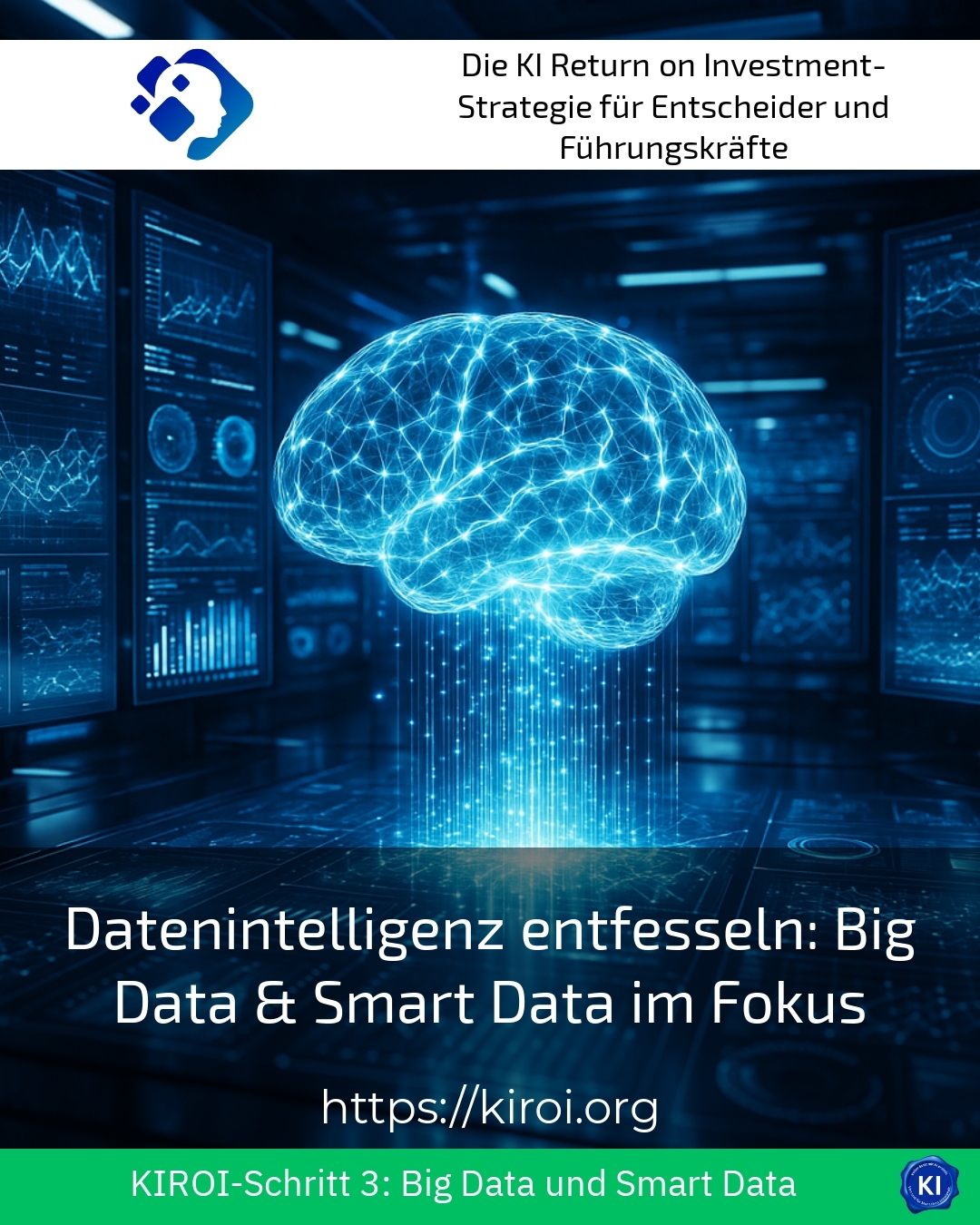In today's digitalised world Data intelligence is becoming increasingly important. It describes the ability to refine an almost infinite amount of data - often referred to as big data - in such a way that it produces targeted, high-quality information. This so-called smart data helps companies to make more informed and faster decisions. It is not just the sheer volume of data that counts, but the quality and relevance of the insights gained. In the following, we look at how data intelligence is unleashed in practice and what impact it has in various industries.
Big data and smart data: the basics of data intelligence
Big data refers to huge, often heterogeneous and unstructured volumes of data that can come from a variety of sources - such as IoT sensors, transactions or user activity on the web. Taken on its own, this raw data usually offers no direct added value because it is neither organised nor processed in a targeted manner.
Smart data, on the other hand, stands for data that has been filtered, sorted and contextualised from big data. It is precise, relevant and enables fast and reliable decisions. This shows that data intelligence not only focuses on the collection of large amounts of data, but above all on the intelligent processing and analysis of data.
Modern technologies such as artificial intelligence (AI) and machine learning use algorithms to generate targeted smart data from big data. This helps companies not to drown in the flood of information, but rather to gain valuable insights that support and optimise their business processes.
Practical examples: How data intelligence supports companies
In the retail sector, for example, providers use data-intelligent systems to analyse customer preferences in real time. This enables fashion retailers to better predict seasonal trends and customise their product range. This leads to higher sales and lower stock levels.
In the energy sector, data-intelligent analyses help to forecast consumption patterns. Thanks to the insights gained, an energy supplier can better integrate renewable energy and reduce costs at the same time. Logistics also benefits from data intelligence by optimising supply chains, shortening routes and thus increasing efficiency.
BEST PRACTICE with one customer (name hidden due to NDA contract) - A medium-sized industrial company uses data-intelligent tools for predictive maintenance. The solution predicts machine downtimes, minimising unplanned breakdowns and making maintenance cycles more efficient. This noticeably increases production efficiency.
Targeted use of data intelligence: Added value instead of a flood of data
Companies often devote large resources to collecting data, but lose track of how they actually utilise it. Data intelligence creates a bridge here. By ensuring data quality and filtering only the most relevant information, it supports agile adaptation to market requirements.
It is important that the data is not viewed in isolation, but analysed in the appropriate context - for example, industry-specific. This enables customised recommendations for action and better decisions. Studies show that companies with strong data intelligence can significantly increase their competitive advantage.
The healthcare sector provides another example. Data intelligence enables the analysis of large volumes of medical data and thus supports personalised treatment approaches and early warning systems for disease outbreaks.
In the financial sector, data-intelligent systems help to recognise fraud attempts and adhere to compliance requirements. This opens up a wide range of possible applications across all industries, helping companies to optimise processes and achieve strategic goals.
Tips for developing data intelligence in the company
1. start by structuring your existing databases. Not every piece of information is relevant, but with a good data governance concept you can create transparency and better control.
2. rely on modern analysis tools such as AI-based algorithms and machine learning to efficiently transform raw data into actionable smart data.
3. train your teams in data skills. Employees who understand how data can be utilised make more informed decisions and see new opportunities.
My analysis
Data intelligence is proving to be the key to unleashing the potential of modern data worlds. It turns the sheer volume of available information into usable insights that help companies make tangible progress in their respective industries. The intelligent selection and processing of data is crucial in order to generate targeted, qualitative smart data. This makes it possible to better understand market requirements, improve processes and secure sustainable competitive advantages. In this way, data intelligence accompanies companies on their path to a data-driven future and provides them with valuable impetus for strategic growth.
Further links from the text above:
DataScientest: Data intelligence - What is it?
Netconomy: Big data vs. smart data
Kanaries: What is data intelligence?
Lexware: utilising big data and smart data
IBM: What is Data Intelligence?
Sauldie: Unleashing data intelligence
Sauldie: Data intelligence in everyday practice
O2 Business: Smart Data definition and application
Datamart: What is Data Intelligence?
B2B Smart Data: Explanation Smart Data
For more information and if you have any questions, please contact Contact us or read more blog posts on the topic Artificial intelligence here.















